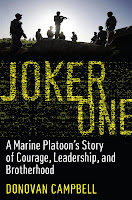Game Change: Obama and the Clintons, McCain and Palin, and the Race of a Lifetime (John Helemann and Mark Halperin). A #1 bestseller, Game Change is a fast-paced insider view of the candidates and their campaigns in the 2008 presidential race. Particularly fascinating is the chapter covering the Palin pick: the McCain people knew they had to create fireworks with the VP pick before Obama ran away with the election. Minnesota’s Tim Pawlenty was the favorite of many in the McCain camp, but they went with Palin as the ultimate risk-or-reward pick. A key lesson of the book: Obama won not only because of a pliant and awe-struck media, but also because he and his aides ran a disciplined and focused campaign. Example: in their preparation for the vice-presidential debate, the Obama team created a mock debate hall identical to the real set on which the debate would take place. Jennifer Granholm was the stand-in Palin for Biden’s debate sessions; Granholm prepared by analyzing Palin’s Alaska debates, and then spending time debating a mock stand-in for Biden to prepare her for the “real” mock debates versus the actual Biden. Palin, on the other hand, spent days poring over dozens of index cards choked with basic information on foreign policy, economic institutions, etc, before the McCain camp in desperation finally had her dispense with the index cards, and instead had her spend the few days before the debate memorizing a set of rote answers to likely questions. Ironically, Palin still debated Biden to a draw, opening with the disarming, “Do you mind if I call you Joe?” line. All of which goes to show that Biden, with the better preparation, still missed the barn with a 4x4 while Palin displayed characteristic charm and poise on stage, her deficient knowledge of foreign policy notwithstanding. Game Change provides a few insights in the political strategies of the different candidates, but mainly it’s a fun tabloid book to read for the politically fervent, in the same way that I imagine People is engaging for the celebrity obsessed.
Courage and Consequence: My Life as a Conservative in the Fight (Karl Rove). A rollicking ride through Rove’s life and his years in the Bush administration, Rove’s memoir is a comprehensive and intelligent defense of numerous Bush policies and assertions-waterboarding, WMDs, etc- that are contemptuously dismissed as self-evidently false or immoral by many in the academy and media. A candid memoir, Rove talks openly about the contentious relationship between his own parents, and their struggles in life. Rove’s mother committed suicide in 1981, just seven years after her own mother had attempted suicide. Reading such painful details is a reminder that all political figures, whether we agree with their policies or not, are always mere men in need of redemption.
Samuel Adams: A Life (Ira Stoll, 2008). I seem to remember reading a glowing review of this book in The Weekly Standard. On the cover, Walter Isaacson, himself author of a critically acclaimed biography of Benjamin Franklin, says Stoll has done a “glorious job bringing to life” Samuel Adams role in the revolution. Balderdash, I say. A pedantic style, shoddy research, and a child-like reliance on secondary sources (particularly on McCullough’s John Adams) combine to make a pedestrian effort at capturing Adams’ life. Not that it’s a total waste of time; the book at least is able to provide the general cast of Adams’ life, and Stoll’s analysis of why Adams, considered by the founders as one of the most essential revolutionaries during the days of ‘76, has been passed over by modern historians, is worth-while. However, Stoll is no McCullough, even if Sam Adams is nearly as worthy a subject as his cousin.
The Power and the Glory (Graham Greene). A novel set during the days of the anti-clerical purges in early 20th century Mexico, Greene’s protagonist is a priest on the run from the anti-Christian fascist (communist?) government in power. The priest loves whiskey almost more than God, and is accepted by the villages because, well, all of the other priests have either been arrested or have fled the country. The vagabond priest, despite violating his ministerial oaths by having a child through an illicit affair, despite his near-compulsive need for whiskey, still believes in the faith delivered to the saints, even if he is certain he isn’t one.
